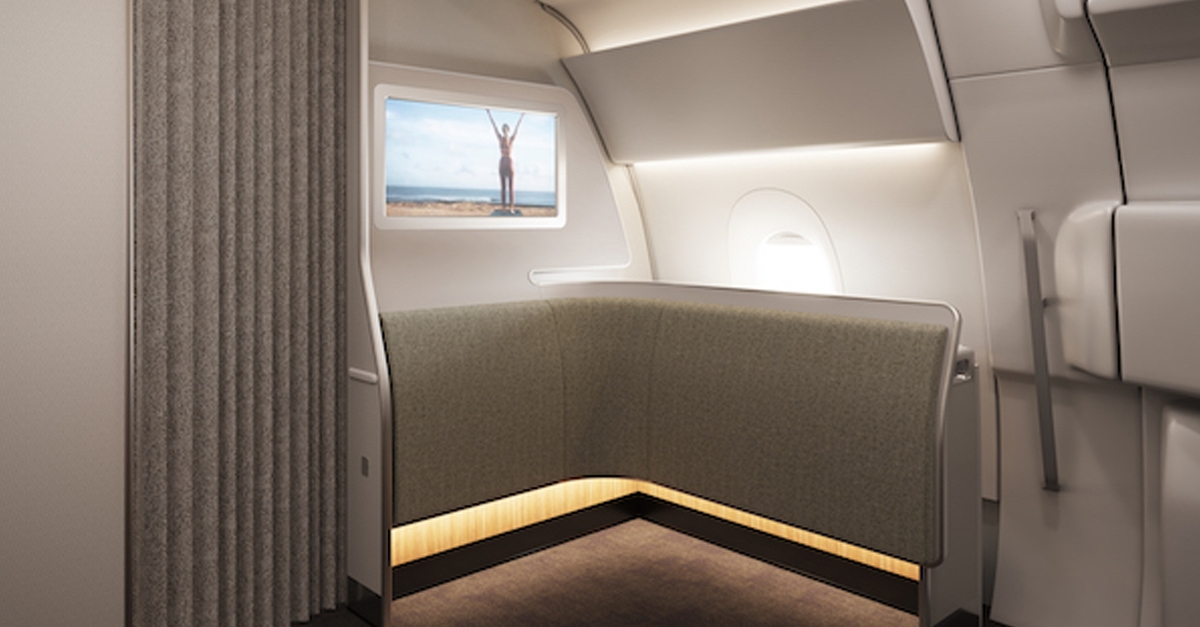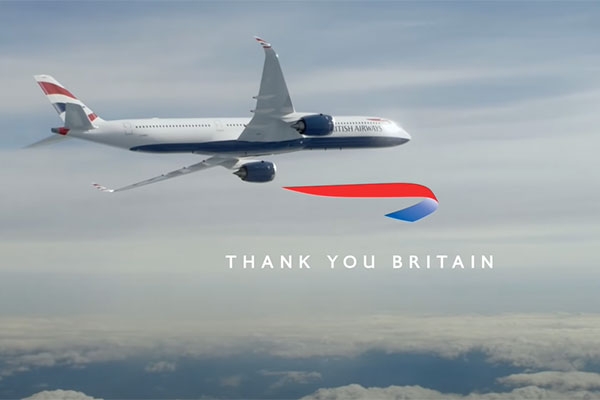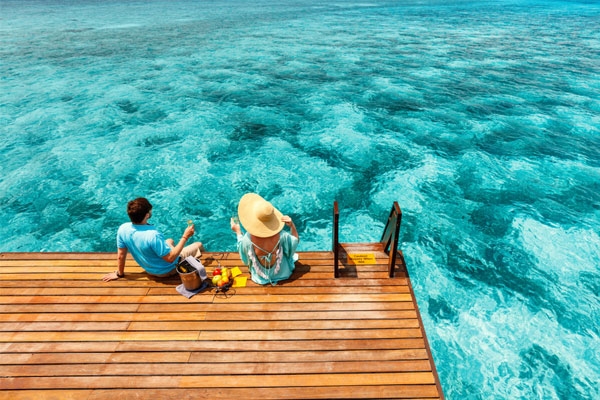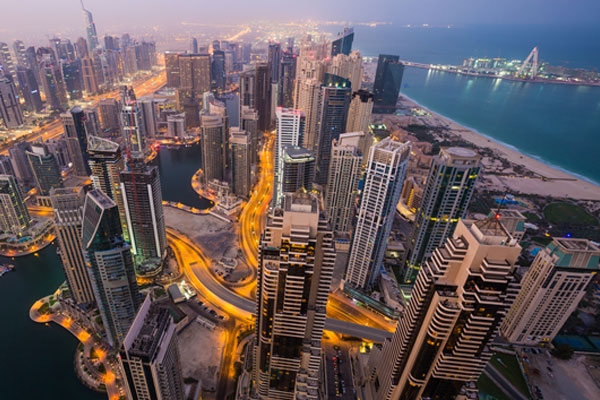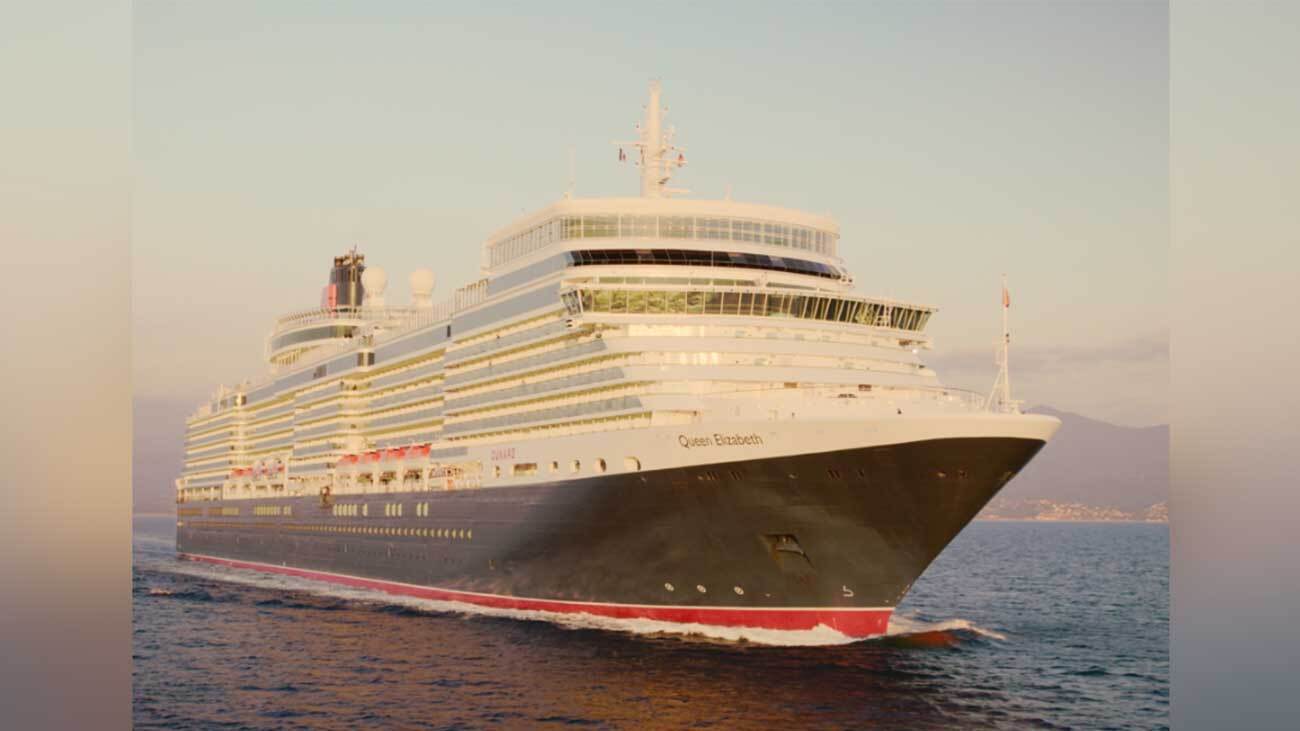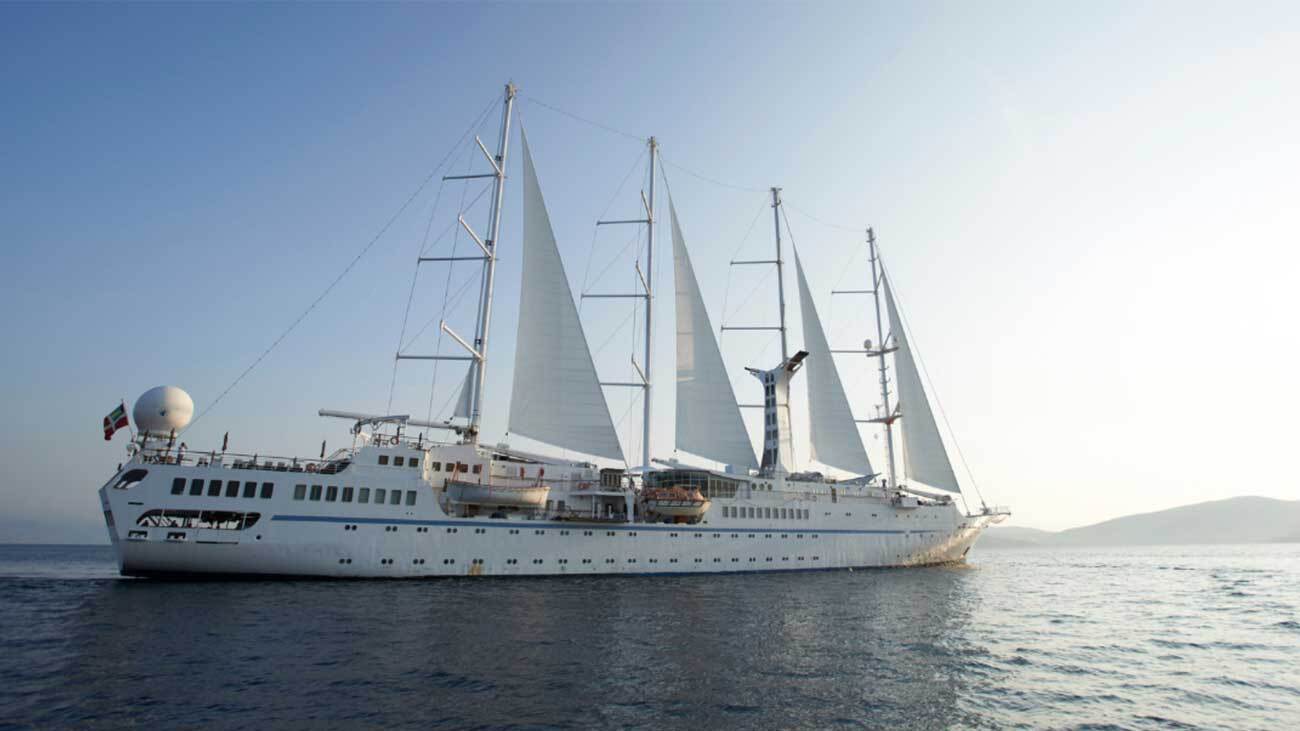Wellbeing zone to feature on Qantas aircraft flying 22-hour Sydney-London route
A dedicated wellbeing zone will feature on Qantas aircraft to be deployed on direct ultra long-haul routes from Sydney to London and New York.
The Australian carrier believes it will be the first airline in the world to offer a purpose-built area featuring sculpted wall panels and integrated stretch handles, a guided on-screen exercise programme, a hydration station and a range of refreshments.
The wellbeing zone will be located between the premium economy and economy cabins on the specially designed Airbus A350s to be deployed on the Project Sunrise routes from late 2025.
The A350s will fly 238 passengers for up to 22 hours non-stop from Australia to almost any destination in the world, cutting down point-to-point travel time by more than three hours compared to routes with one stop.
The 40-seat premium economy cabin and the 140-seat economy cabin revealed today will have the most generous seat pitches of any Qantas aircraft, ergonomic leg and foot rest systems and personal storage options.
Every seat across all four cabins will feature multiple fast USB charging ports and every premium seat will also have integrated wireless charging.
The A350 fleet will also include with fast and free wi-fi, while Bluetooth connectivity will feature across all cabins so passengers can connect their personal headset to the individual inflight entertainment screen.
The aircraft will have six large enclosed First Suites designed to feel like a mini boutique hotel room with a two metre flat bed, dining table for two, separate recliner chair and a 32-inch 4k ultra-high definition touch screen TV.
The 52 Business Suites will feature sliding doors for additional privacy, lay flat bed, large dining table, bespoke lighting and 18-inch 4k ultra-high definition touch screen TV.
Qantas Group chief executive Alan Joyce said: “We have spent just as much time on the second half of the aircraft as we did the front, in fact we started studies on the wellbeing zone before any other area of the A350.
“The new Project Sunrise flights give us the opportunity to re-think long-haul travel in its entirety, from aircraft cabin design to what ingredients we include on the inflight menu.
“Reducing the number of seats onboard our A350 to 238 compared to the 300-plus seat layout of other carriers means we not only maximise aircraft performance across long distances, we give our passengers more space and comfort.
“Fewer seats translate to more space for each customer and a dedicated wellbeing zone for travellers to stretch, help themselves to a snack and spend time out of their seat. We are the only airline in the world that will have a bespoke designed onboard stretch and movement space.”
Qantas also released scientific research on reducing jet lag and improving sleep and overall wellbeing before, during and after ultra long-haul flights, which has driven the A350 cabin design.
The study found that different lighting and sleep schedules, mealtimes, and specific ingredients like chilli and chocolate during long-haul flights contribute to improved traveller wellbeing with movement and exercise a key element.
Australian designer David Caon incorporated the research considerations as part of the overall cabin layout and worked closely with seat manufacturers.
He said: “The premium economy cabin has been redesigned from the ground up with a focus on ergonomics, entertainment and privacy.
“The new headrest wings are the biggest visible difference and will provide passengers with both additional support and a sense of privacy without isolating them from travel companions. An upholstered ergonomic foot and leg rest system allows the body to be cradled in recline to better help passengers sleep.”
“Economy travellers also have an OLED 13-inch TV screen, foot net and convenient storage space within arms’ reach to store glasses and personal items.
“The team has spent extensive time testing ergonomics, lumbar support and breathability of the seat fabrics in the new economy seat which will have 33 inches of legroom.
“In both the premium economy cabin and economy cabins, we have redesigned every element of the seats to provide better features as well as a fresh look across the entire aircraft to create a sense of light and calm.”
